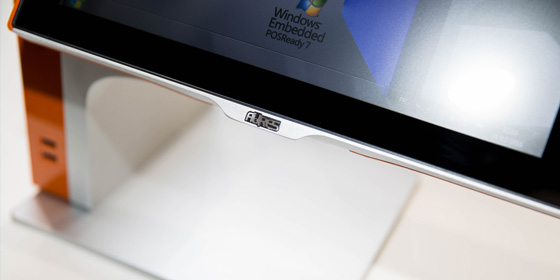By Paul HUDSON – Business Development Manager – AURES UK
There is a theory that, as high street retail evolves into something new under the influence of digital commerce, the traditional boundaries between the retail, hospitality and leisure sectors will become increasingly blurred. As consumer-facing businesses look to add value by creating experiences that will encourage people from out behind their screens and drive footfall, they will look to find synergies with one another to offer multi-touch services all under one roof.
Yes, we already have shopping and entertaining destinations where retail, restaurants, cinemas and more sit comfortably side by side. But what if, instead of being separate concessions operating on the same premises, these were all part of the same multi-faceted business? How would that affect things like brand positioning and supply chain logistics? How would it affect point of sale, combining what have to date been treated as distinct POS disciplines with their own unique requirements?
To get an idea of how this would work in practice, we need look no further than the modern stadium. Professional sports and entertainment venues already function as sophisticated multichannel operations combining ticket sales with merchandise retailing, bars, restaurants and fast food concessions. For stadium operators, EPOS systems have to be able to serve all of these purposes.
Through a number of channel partners, AURES supplies EPOS hardware to dozens of professional football, cricket and rugby stadiums, plus racecourses and multipurpose arenas. Here are a few of the things we have learnt over the years about what makes an EPOS system work for every occasion.
Flexibility meets demand
One of the defining characteristics of stadium operations is that they experience marked peaks and troughs in trade unlike any other sector. Around match days and events, footfall at retail and hospitality outlets suddenly explodes as thousands, if not tens of thousands, customers arrive. So, the first thing is, a stadium EPOS system has to be robust enough to cope with the sudden spike in traffic, capable of processing at high speed and with minimal risk of failure.
We also find that stadium operators like to keep their options open with their EPOS hardware. So, it might be the case that they notice their retail operations are busier immediately before
an event, but bars and food outlets see their peaks during or afterwards. Or it might be that, in between matchdays, operators try to maximise revenues by holding special retail events or hiring out catering and hospitality facilities.
The option to repurpose EPOS terminals and use them in different places and for different operations therefore appeals. This is one reason why the AURES YUNO and NINO terminals are so popular in stadiums. As well as being incredibly reliable high-performance units, they are also compact, easy to move and simple to set up. We also do a good trade with stadiums taking mobile EPOS equipment like the AURES SWING, which can be used as a fixed point POS device or as a tablet, and is therefore ideal for pop-up sales areas around events, or for queue-busting initiatives.
In the hands of the customer
One thing that stadium operators have been quick to latch onto is the value of handing some of the control back to customers in the point of sale process. One example is the use of customer-facing screens in sports club retail outlets for customising replica shirts. Imitating the kind of experience customers would get ordering shirts online, a screen makes the whole process more immediate and direct, giving people the assurance that they can get exactly what they are looking for.
Another popular trend growing in stadium EPOS is the use of self-service kiosks. This has major benefits in ticketing, reducing queues both for on-site purchases and collecting pre-orders. But one of the most exciting things about kiosks is the potential to integrate all sales in a single channel. Customers attending an event could, for example, pre-order drinks and snacks when they collect their tickets, or make their merchandise purchase to collect after the event. This also ties in with a growing trend for stadium operators to offer apps which customers can use to order snacks and so on from their mobile phone while an event is in progress.
If you would like to meet up with our Business Development Manager, Paul Hudson during The Stadium Business Summit at Old Trafford, Manchester on 4th and 5th June please call 07813150601 or alternatively email: paul.hudson@aures.com to arrange a time to suit you.




